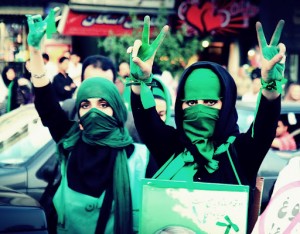Arabs and Democracy – Part 2
Wednesday, February 1st, 2012 5:53:46 by Fouad Ashraf
Arabs and Democracy – Part 2
The prevalence in the revolts of social networks like Facebook, YouTube and Twitter, are symptoms, not causes, of this organizational structure. These are the modes of expression of an intelligent and capable people to use the tools at your disposal to organize
independently.
Although these movements deny network organized in a central direction, however, consolidate their claims through a new constitutional process to more active segments of the rebellion to the needs of the population in general. The uprising of the Arab youth
is certainly not directed towards a traditional liberal constitution, yet it guarantees the separation of powers and electoral dynamics ordinary but rather a form of democracy suited to the new forms of expression and the needs of the crowd.
This should include, first, the constitutional recognition of freedom of expression, not in the typical form of mainstream media, which is constantly subject to the corruption of governments and economic elites, but one that is represented by the common
experiences of network relations. And since these uprisings were caused not only by widespread unemployment and poverty, but also by a widespread feeling of frustration highly productive capacities and expressive, especially among young people, a radical constitutional
response is required to devise a common plan of management of natural resources and social production.
This is a threshold through which neo-liberalism cannot pass and capitalism becomes questioned. And Islamic law is totally inadequate to meet these needs. This is where the insurrection not only upsets the balance of power in North Africa and the Middle
East, but also the global system of economic governance.
That’s why we hope that the cycle of struggles spanning the Arab world to become like Latin America to achieve political movements inspire and raise aspirations for freedom and democracy beyond the region. Each revolt, of course, can fail: tyrants can unleash
a bloody repression, military juntas may try to stay in power; traditional opposition groups may try to take over the movements, and religious hierarchies may try to take control.
But that does not die are the political demands and desires are unleashed, the expressions of an intelligent generation of young people seeking a different life in which to put their skills to use. While the demands and wishes to stay alive, the cycle of
struggles continue. The question is what these new experiments of freedom and democracy will teach the rest of the world during the next decade.
Tags: democracy, Revolution
Short URL: https://www.newspakistan.pk/?p=11458

















